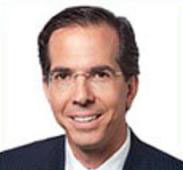Stephen Winowich
Mentor

Dr. Stephen Winowich
(Artificial Heart Program, MIRM & Vital Engineering) Mechanical circulatory support technologies; Artificial Organs; Cardiac recovery
Research efforts are focused in more clinically based areas, and at this time are related to artificial organ technologies, with the current focus being related to mechanical circulatory support devices. We are assisting in the development of new artificial organ technologies, and the clinical application of such devices. We are currently studying the opportunity for native heart recovery in patients who suffer from end stage heart failure, as opposed to the current treatment standard of cardiac transplantation. These individuals undergo temporary support of the left and/or right ventricular with cardiac assist devices. Other facets of this patient population are also under investigation and include, rehabilitation potential, wound healing, and the possibility of chronic mechanical support that would replace the need for native heart replacement. A component of the chronic population of patients will be the evolution of programs that will be designed to manage many hundreds or thousands of ventricular assist device patients living at home within their respective communities. As a result, we are creating mechanisms to train patients, caregivers, and providers within the community, and developing a medical network for care should a clinical or technical emergency arise. Another area of research focuses on other artificial organ technologies. Specifically, they include the development and application of a bio-artificial liver device and artificial lung technologies. Although the patient populations differ, the application of these technologies is similar to the mechanical cardiac devices in that they will be used as a bridge to transplant, until native organ recovery occurs, or potentially long term/chronic. These technologies are not as advanced as the cardiac replacement systems at this time.
